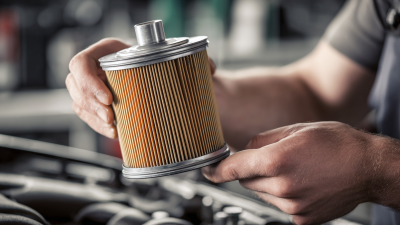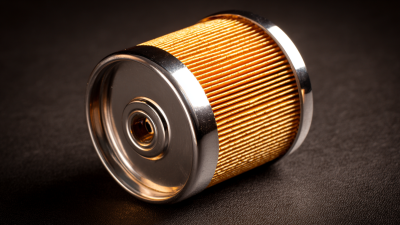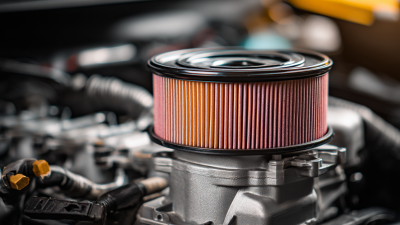Choosing the right oil filter is crucial for maintaining the performance and longevity of your vehicle's engine. With a myriad of options available in the market, it can be overwhelming for car owners to determine which oil filter best meets their needs. This essential guide aims to simplify the selection process by highlighting key factors to consider when purchasing an oil filter, including compatibility with your vehicle, filtration efficiency, and ease of installation. Additionally, we will explore the best oil filter options based on various criteria such as price, durability, and user reviews. Whether you're a DIY enthusiast or someone looking to make informed decisions at the auto parts store, understanding the intricacies of oil filters will empower you to choose the best product that ensures optimal engine performance and protection.
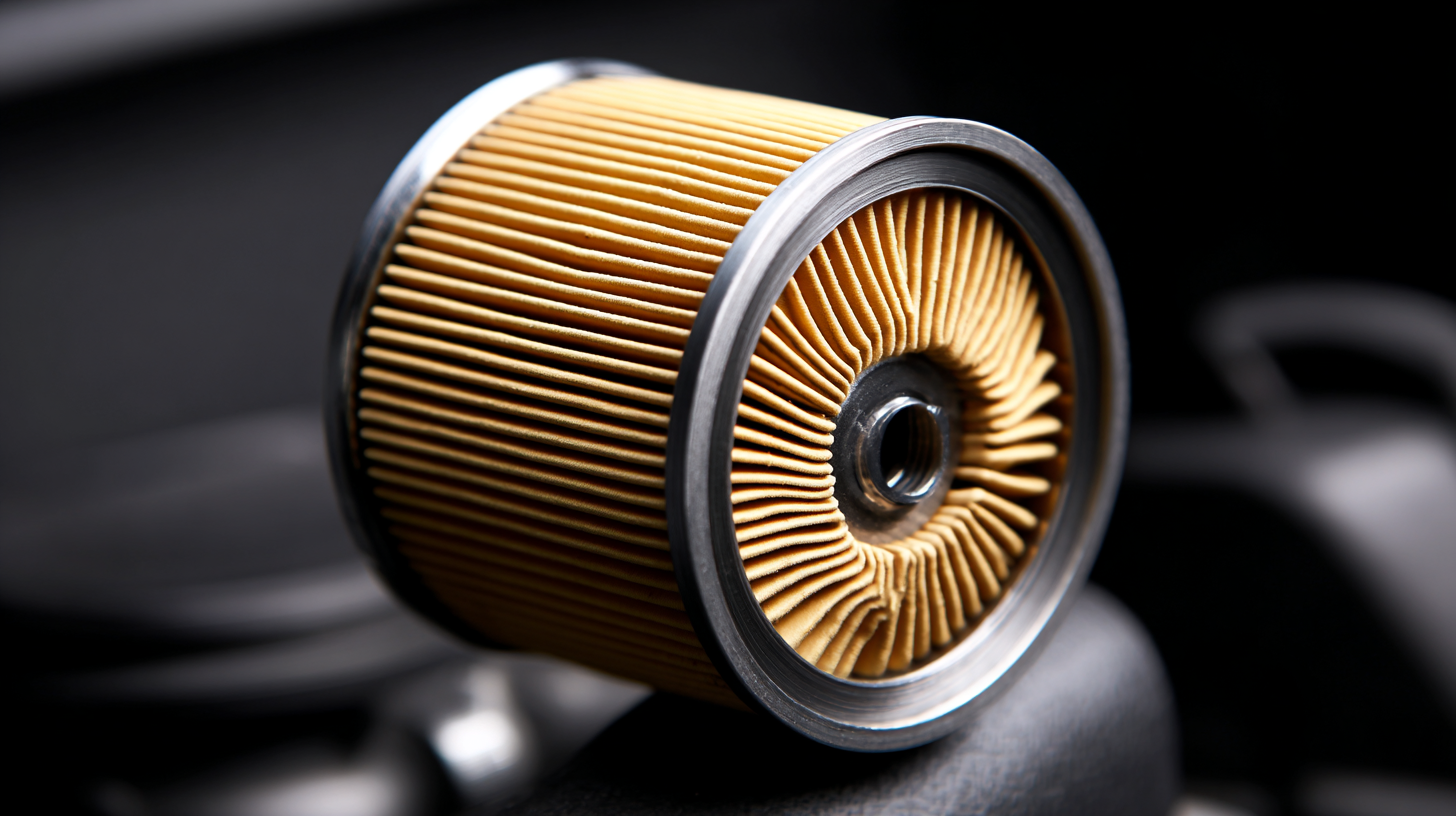
When it comes to selecting the right oil filter for your vehicle, understanding the various types available is crucial. There are typically three main types of oil filters: mechanical, synthetic, and bypass filters.
 Mechanical filters are the most common; they use paper or synthetic media to capture contaminants from the oil as it circulates through the engine. These filters are effective for regular oil changes, providing solid protection for most basic vehicle needs.
Mechanical filters are the most common; they use paper or synthetic media to capture contaminants from the oil as it circulates through the engine. These filters are effective for regular oil changes, providing solid protection for most basic vehicle needs.
Synthetic filters, on the other hand, utilize advanced filtration technology to provide a higher level of protection. They are designed to last longer and can handle high temperatures and pressures, making them ideal for performance cars or vehicles that operate under extreme conditions.
Bypass filters work differently by allowing a portion of the oil to go through a secondary filter that cleans it further, making them great for enhancing engine longevity but often more expensive and complex to install. Understanding these types will help you make an informed decision tailored to your vehicle's needs and driving habits.
When selecting the right oil filter for your vehicle, several key factors come into play. First and foremost, it's essential to consider the specific make and model of your vehicle. Different engines have varying filtration requirements, so an oil filter that's perfect for one model may not be suitable for another. Always consult your owner's manual or a trusted automotive guide to determine the appropriate specifications for your engine.
Next, the type of oil filter is crucial. There are two main types: full-flow filters and bypass filters. Full-flow filters are the most common, designed to filter all the oil before it circulates through the engine. On the other hand, bypass filters are used in specific applications, primarily for additional filtration where enhanced performance is needed. Additionally, don’t overlook the quality of the filter media. High-quality filters often use synthetic materials that provide better filtration capabilities while ensuring longer service life. By taking these factors into account, you can make a more informed decision that will help maintain your vehicle's engine health and performance.
When it comes to maintaining your vehicle, one crucial component to monitor is the oil filter. Recognizing the signs that your oil filter needs replacement can prevent serious engine problems. One of the most noticeable indicators is a drop in oil pressure or a warning light on your dashboard. If you notice these symptoms, it’s advisable to check the oil filter, as a clogged filter can restrict oil flow, leading to inadequate lubrication.
Another sign to watch for is an unusual increase in engine noise. When the oil filter becomes dirty, it may not effectively trap contaminants, resulting in increased wear on engine components. Additionally, if you observe dirty or gritty oil on the dipstick, it may indicate that the oil filter is failing to clean the oil adequately. Lastly, if you experience frequent oil changes due to rapidly dirty oil, it could be time to replace your oil filter to ensure optimal performance and longevity of your engine. Regularly checking these signs can save you time and money in the long run.
When it comes to maintaining your vehicle, properly installing an oil filter is crucial for ensuring the longevity and efficiency of your engine. According to a study by the Automotive Maintenance and Repair Association (AMRA), approximately 30% of engine problems can be traced back to improper oil maintenance, including the incorrect installation of oil filters. To avoid such issues, start by gathering the right tools: an oil filter wrench, a clean rag, and a new filter that meets your vehicle’s specifications.
During the installation process, ensure you apply a lubricant, such as fresh oil, to the rubber gasket of the new filter. This step is vital as it ensures a proper seal and makes removal easier in the future. The National Institute for Automotive Service Excellence (ASE) highlights that a tight seal can prevent oil leaks, which often lead to critical engine damage. Additionally, hand-tighten the filter rather than using tools, as over-tightening can warp the gasket and lead to leaks. Following these tips can greatly reduce the risk of oil-related engine issues and enhance your vehicle’s performance.
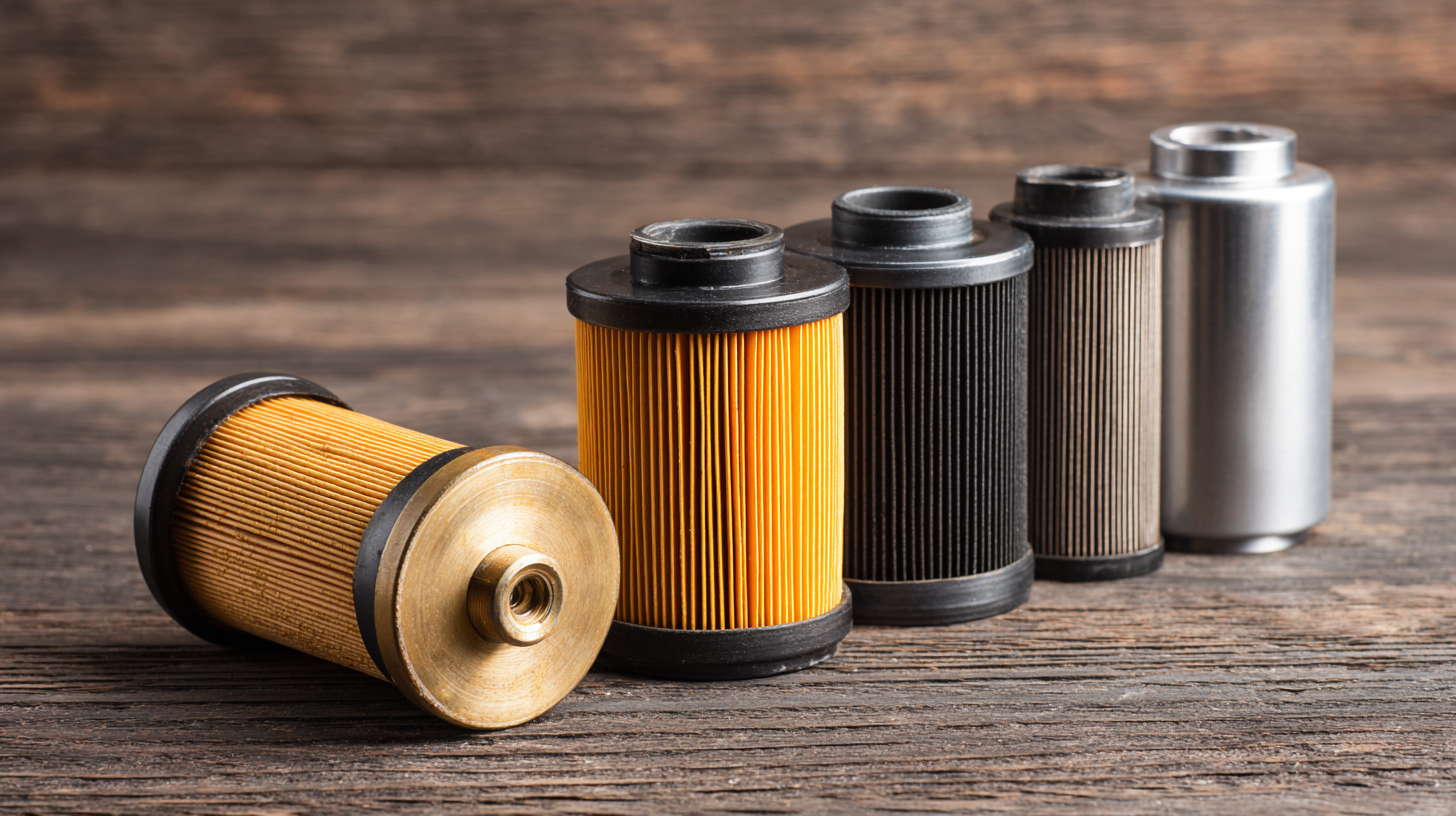
Choosing the right oil filter is crucial for maintaining engine performance and extending longevity. According to a study by the International Council on Clean Transportation, using a high-quality oil filter can improve an engine's contaminant removal efficiency by up to 98%. This enhancement helps prevent harmful particles from circulating within the engine, which can lead to increased wear and correlated engine problems over time. When engines operate with cleaner oil, they not only perform better but also achieve better fuel efficiency, potentially improving mileage by an average of 2-3%.
Furthermore, the Society of Automotive Engineers report reveals that vehicles with regularly replaced quality oil filters can prolong engine life by up to 50%. Poor filtration allows sludge and dirt to build up, leading to oil breakdown and necessitating costly repairs. By investing in an appropriate oil filter that meets or exceeds manufacturer specifications, drivers can ensure their engine runs smoothly, performs optimally, and stands the test of time. Quality matters when it comes to oil filters, as the right choice translates directly into tangible benefits for engine performance.
| Filter Type | Filtration Efficiency | Lifespan (Miles) | Price Range | Impact on Engine Performance |
|---|---|---|---|---|
| Standard | 70-85% | 3,000 - 5,000 | $5 - $15 | Basic performance |
| Premium | 85-95% | 5,000 - 10,000 | $15 - $30 | Improved efficiency |
| High-Performance | 95%+ | 10,000 - 15,000 | $30 - $60 | Maximized performance |
| Eco-Friendly | 80-90% | 5,000 - 7,500 | $10 - $25 | Sustainable choice |
